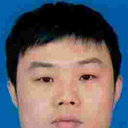De-repression of the p21 promoter in prostate cancer cells by an isothiocyanate via inhibition of HDACs and c-Myc.
Ključne riječi
Sažetak
Natural isothiocyanates from cruciferous vegetables have been described as important dietary factors for prostate cancer prevention. Phenethyl isothiocyanate (PEITC), found rich in watercress, induces growth arrest and apoptosis in prostate cancer cells, and also inhibits the testosterone-mediated growth of prostates by regulating the androgen receptor and cell cycle progression in rats. PEITC has been recently identified as an inhibitor of histone deacetylases (HDACs). Herein we describe the mechanism of PEITC-mediated growth attenuation in relation to HDAC inhibition in human prostate cancer cells. Exposure of androgen-dependent prostate cancer cells LNCaP to PEITC resulted in cell cycle arrest and a p53-independent up-regulation of the inhibitors of cyclin-dependent kinases, including p21WAF1 and p27. The mechanism of p21 activation was investigated. PEITC significantly enhanced histone acetylation and induced selective modification of histone methylation for chromatin remodeling. Chromatin immunoprecipitation revealed that the p21 gene was associated with the PEITC-induced hyperacetylated histones. As a result, the chromatin unfolding permitted the transcription activation of the p21 gene. PEITC also significantly reduced the expression of c-Myc which represses p21. Pull-down assays using Sp1 affinity oligo beads of the p21 promoter, showed decreased c-Myc binding to the Sp1 transcriptional complexes in the p21 promoter, resulting in reduced p21 repression. The quantity of PEITC (0.5-1 micro M) effective to mediate cell cycle arrest was less than that for inhibiting c-Myc (2-5 micro M), suggesting that the inhibition of HDACs may be the primary mechanism for p21 activation. The PEITC-mediated growth attenuation of prostate cancer cells includes an interactive mechanism involving HDAC and c-Myc inhibition.


